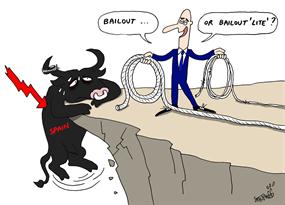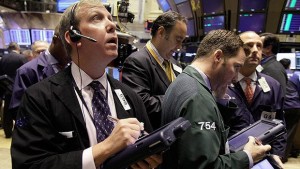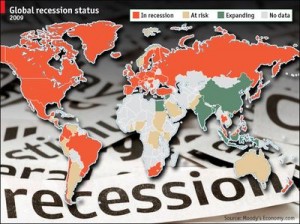Feb. 10 (Bloomberg) — Gasoline and heating oil fell as commodities retreated on concern that Greece’s bailout was unraveling over German demands for deeper budget cuts and that the region’s debt crisis would spread.
Futures declined as German Finance Minister Wolfgang Schaeuble told lawmakers in Berlin today that Greece is missing its debt-cutting targets, according to two people who took part in the meeting. The dollar surged against the euro, weakening the investment appeal of commodities.
“There’s worry about Europe and a lot of economic uncertainty out there,” Gene McGillian, an analyst and broker at Tradition Energy in Stamford, Connecticut, said by phone.
Gasoline for March delivery fell 3.79 cents, or 1.3 percent, to settle at $2.9749 a gallon on the New York Mercantile Exchange.
The euro slipped 0.9 percent against the dollar at 2:37 p.m. in New York. The S&P GSCI spot index of 24 raw materials sank for the first time in six days, losing 0.9 percent.
Greek Prime Minister Lucas Papademos told members of his government they must back deeper budget cuts needed to prevent financial collapse or quit, as political dissension threatened the country’s second bailout.
Greece, facing doubts from European officials about its commitment to reduce deficits, will take years to emerge from its debt crisis, JPMorgan Chase International Chairman Jacob Frenkel said today in a radio interview on “Bloomberg Surveillance.”
Demand Concern
“The concern is if Greece were to default and possibly leave the European Union, it could happen elsewhere and there would be a slowdown in Europe’s economy, impacting demand,” said Andy Lipow, president of Lipow Oil Associates LLC in Houston.
Resolution of the aid talks, which have dragged on since July, would reduce the threat that speculators will target debt- saddled nations including Italy and Portugal.
“We had a nice rally in products, but with a much stronger dollar and an impasse in Greece, it’s a great reason to take profits,” James Cordier, portfolio manager at OptionSellers.com in Tampa, Florida, said
Gasoline gained 2.1 percent this week, the third increase in four weeks, and is up 11 percent this year. Prices reached a five-month high yesterday on speculation that refinery shutdowns in the U.S., Europe and the Virgin Islands, coupled with seasonal maintenance, would trigger a supply crunch.
Gasoline Demand
Over the past four weeks, gasoline demand, measured by deliveries to wholesalers, was 6.8 percent lower than a year earlier, the Energy Department reported Feb. 8.
“Gasoline demand is horrible,” McGillian said. “It was due for a bit of a pullback.”
The International Energy Agency cut its 2012 global oil demand forecast for a sixth month, citing a “darkening” economic outlook. Worldwide consumption will rise by 800,000 barrels a day to 89.9 million barrels, the IEA predicted in its monthly oil market report today. That’s 300,000 less than its previous estimate.
March-delivery heating oil declined 2.64 cents, or 0.8 percent, to settle at $3.1821 a gallon on the exchange. Prices rose 2.2 percent this week, the third consecutive weekly gain, and are up 8.4 percent since Jan. 1.
Regular gasoline at the pump, averaged nationwide, rose 0.9 cent to $3.497 yesterday, according to AAA data. Prices have risen 21.9 cents, or 6.7 percent, this year.
Original Article by:
Bloomberg Businessweek-February 10, 2012, 4:06 PM EST
Other Related Articles





